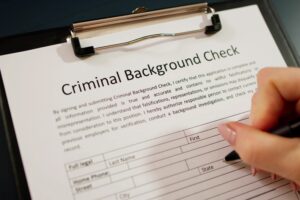Texas laws do not take the offense of driving while intoxicated (DWI) lightly. The laws are strict, and the penalties are stiff. As you can see in the following review of Texas Penal Code Ch 49.04 – Driving While Intoxicated, there is much at stake as you go to trial for your DWI charge. Your legal defense could make the difference between a low fine or a hefty one—and between freedom or incarceration.
Randall B. Isenberg has proven himself in courtrooms for over 30 years, both as a former prosecutor and a state district judge. He has worked the other side of DWI cases, meaning he knows how prosecutors will be working your case and how the judge will be considering the factors put before them.
With the Law Offices of Randall B. Isenberg representing you in your Texas DWI charge, you can rest assured you have your defense bases covered. Call 214-696-9253 today for a free case review.
Texas Penal Code Chapter 49.04 – Driving While Intoxicated
Texas Penal Code Ch 49.04 – Driving While Intoxicated defines this offense, including the components of a DWI that the state must prove beyond a reasonable doubt before they can convict you of this offense:
“A person commits an offense if the person is intoxicated while operating a motor vehicle in a public place.”
Key Terms in the Texas Penal Code Ch. 49.04 – Driving While Intoxicated
To fully comprehend the various elements laid out in the Texas Penal Code Ch. 49.04, you must understand how Texas lawmakers define certain words contained within the code’s definition of DWI.
Here are some important concepts with their definitions under Texas law:
Motor vehicle
A device in, on, or by which a person or property is or may be transported or drawn on a highway, except a device used exclusively on stationary rails or tracks
Texas Penal Code Section 32.34(a)(2)
Public place
Any place to which the public or a substantial group of the public has access and includes, but is not limited to, streets, highways, and the common areas of schools, hospitals, apartment houses, office buildings, transport facilities, and shops
Texas Penal Code Section 1.07(a)(40)
Intoxicated
(A) not having the normal use of mental or physical faculties by reason of the introduction of alcohol, a controlled substance, a drug, a dangerous drug, a combination of two or more of those substances, or any other substance into the body; or (B) having an alcohol concentration of 0.08 or more
Texas Penal Code Section 49.01(2)
Three Ways Law Enforcement Can Prove Intoxication
When a law enforcement officer suspects you may be guilty of DWI, they will apply standardized field sobriety testing to prove intoxication via any or all of three criteria:
- You do not exhibit normal use of your mental faculties, due to alcohol, a controlled substance, drug, or combination of these or other substances.
- You do not exhibit normal use of your physical faculties, due to alcohol, a controlled substance, drug, or combination of these or other substances.
- You exhibit a blood alcohol concentration (BAC) of 0.08 percent or more.
Punishment and Penalties for Driving While Intoxicated in Texas
Texas Penal Code Ch. 49.04 indicates that, with certain exceptions, DWI is classified as a Class B misdemeanor, requiring a minimum jail term of 72 hours. Exceptions apply if:
- At the time of the offense, you are found with an open container of alcohol while operating your motor vehicle, in which case the offense is still a Class B misdemeanor, but the minimum term of confinement is increased to six days.
- An analysis of your blood, breath, or urine reveals a BAC of 0.15 percent or more at the time of the offense, in which case the crime is charged as a Class A misdemeanor.
The classification of your DWI offense determines the punishment you will face:
- Class B Misdemeanor – a fine up to $2,000 and/or a jail term of up to 180 days
- Class A Misdemeanor – a fine up to $4,000 and/or a jail term of up to one year
Texas Penal Code Ch. 49.04 Also Includes Punishment Enhancements
If you have previously been convicted of DWI, subsequent offenses are enhanced to a Class A Misdemeanor, requiring a minimum confinement of 30 days.
You will be charged with a third-degree felony instead if you have a previous conviction for Intoxication Manslaughter (Section 49.08) or a similar offense from another state or if you were previously convicted on two occasions for any DWI offense. If you are convicted of a third-degree felony, you could face up to ten years in prison alongside a fine of up to $10,000.
Surcharges and Suspensions for Driving While Intoxicated in Texas
The Texas Department of Public Safety (DPS) can assess various surcharges, depending upon your charge and the details of your arrest.
- First-Offense DWI: $1,000
- Subsequent Offense DWI: $1,500
- DWI with BAC of at least 0.16 percent: $2,000
DPS will assess these surcharges annually for three years. Failure to pay could lead to a suspension of your driver’s license even after you would otherwise be allowed to reclaim it.
Finding a Lawyer to Represent You in Your Defense Against a Texas DWI
As you look for an attorney to represent you in your defense, consider that Texas DWI laws can be complicated and difficult to comprehend. There is no need to compound the stress of your pending charges with the difficulty of parsing all the nuances of Texas DWI law on your own.
Instead, you could hire a criminal defense lawyer who has deep knowledge of DWI cases; understands law enforcement procedures, sobriety testing, and prosecutors’ tactics; and has a natural command of the courtroom will go a long way toward setting your mind at ease.
The Law Offices of Randall B. Isenberg can relieve you of this burden, explain to you your legal options, and represent you in your defense with all the knowledge of a former state judge and prosecutor. We are proud of our past results, and we want to help you, too. Call 214-696-9253 today for a free consultation.








